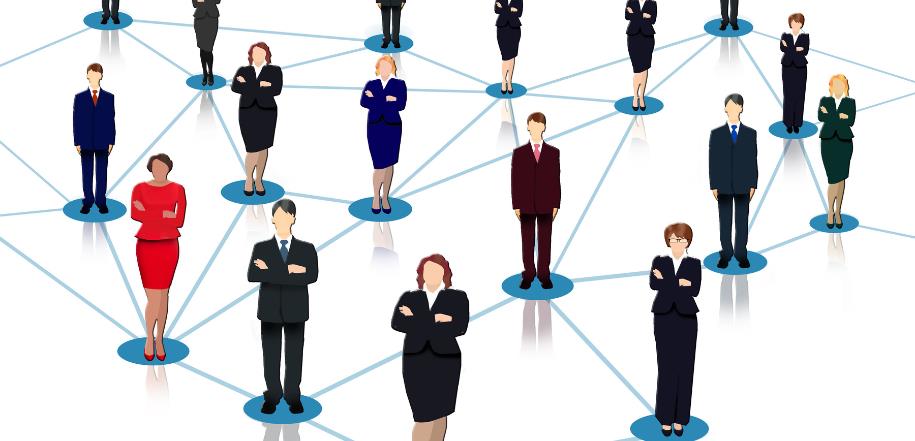The Common Networking Mistake You’re Probably Making – And How to Fix It
Networking is often hailed as the key to landing jobs, but there’s one critical mistake that many job seekers make: they don’t follow up. You may have met a potential mentor, had a great conversation, or received insightful advice, but what happens afterward? Surprisingly, a lot of people fail to follow through. Neil Courtis and Steve Dalton, in their article “Don’t Make This Common Networking Mistake,” highlight this issue and suggest ways to improve your follow-up game.
Why Don’t People Follow Up?
There are two main reasons people shy away from following up:
1. Overthinking the process. Many believe that the follow-up needs to be extraordinary—something like a handwritten note or an elaborate gift. The pressure to make it perfect often leads to doing nothing at all.
2. The burden of reciprocity. Job seekers sometimes feel that they must reciprocate immediately by offering something valuable in return, such as an introduction or helpful information. When you’re early in your career or in a job hunt, it can be hard to reciprocate meaningfully, especially with someone more senior.
I can relate to this dilemma from my own experience. I remember when I was a freshly qualified Chartered Accountant, eager to make connections in the professional world. After attending a networking event, I received incredible advice from a senior professional. However, I hesitated to follow up because I thought I had nothing significant to offer in return. It wasn’t until later that I realized the follow-up wasn’t about grand gestures—it was about building a connection over time.
How to Follow Up Effectively
Courtis and Dalton gathered responses from over 1,000 business school alumni and found that the most appreciated follow-ups weren’t about gifts or elaborate gestures. What mattered most were:
- Hearing how their advice positively impacted you (43%).
- Being thanked for their time and insights (23%).
- Knowing that their advice was followed (22%).
Let me tell you about a time when I successfully followed up with a senior CA who had given me guidance early in my career. I simply sent a thank-you email, mentioning the specific advice he had shared and how it helped me secure a new client. He was genuinely pleased, and that small follow-up opened the door for more conversations and eventually, a lasting professional relationship.
The Three-Part Thank You (3TY)
Steve Dalton suggests using a simple yet effective method called the Three-Part Thank You (3TY). This approach is easy to follow and ensures that you add value to your follow-up without feeling overwhelmed.
1. Express gratitude for their time and insights.
This is the simplest part. Send a brief but heartfelt thank-you message. For instance, “Thank you so much for your time and invaluable insights during our meeting yesterday.”
2. Highlight the specific advice that stood out.
Mention something specific they said that resonated with you. This shows you were paying attention and valued the conversation. “I found your suggestion to look into digital marketing strategies for small businesses particularly insightful, and I’ve already started reading up on it.”
3. Ask if you can follow up with more questions.
This keeps the door open for future conversations: “I would love to stay in touch and ask you further questions as I continue to explore this field.”
Building Trust Over Time
The magic lies in consistency. After your first follow-up, set a reminder to check in a month or so later. Let them know how their advice has helped you. For instance, “I’ve started implementing the marketing strategies you recommended, and they’ve already made a big difference in how I approach client projects.” This not only shows that you take their advice seriously but also builds trust over time.
I recall a mentor who guided me through a difficult transition phase in my career. Each time I implemented her advice, I followed up to share my progress. She became more invested in my success and eventually became a long-term advisor and supporter. This consistent follow-up helped cement the relationship, and it all started with a simple thank-you.
Conclusion
Networking isn’t just about meeting people; it’s about nurturing those connections. Following up doesn’t need to be an elaborate task. By using the Three-Part Thank You (3TY), you can maintain meaningful professional relationships with ease. So the next time you have a great networking meeting, don’t let it end there. A simple, genuine follow-up can go a long way in building a strong, supportive network.
About the Authors:
Neil Courtis is the founder of Sensible Media Ltd, an edtech company focused on careers, producing e-learning courses for European business schools.
Steve Dalton is the founder of Contact2Colleague and the author of *The 2-Hour Job Search* and *The Job Closer*, with expertise in coaching job seekers.

